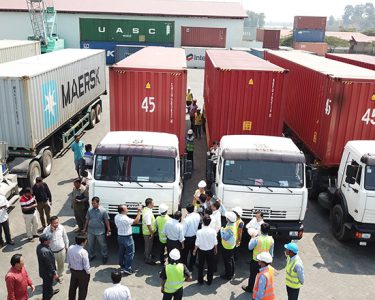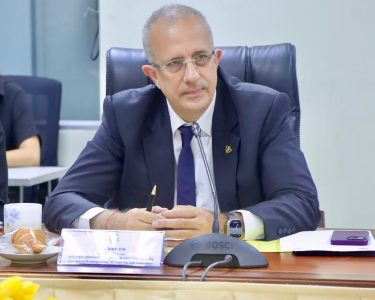Ulysses Dorotheo
Cambodia has a pivotal opportunity to align with global health leadership by raising tobacco taxes—a proven, life-saving measure that also strengthens national revenue. At the recent World Conference on Tobacco Control in Dublin, the World Health Organization (WHO) called on governments to go further in tackling tobacco harms by increasing taxes, especially as many countries face shrinking overseas health aid.
With the July 2 launch of its “3 by 35” Initiative, WHO is urging countries to raise health taxes on tobacco, alcohol, and sugary drinks by at least 50 percent by 2035. This global campaign offers Cambodia a timely and strategic path forward—one that protects public health, reduces long-term costs, and enhances financial resilience. The moment to act is now, with the world watching and the evidence clear.
Since ratifying the WHO Framework Convention on Tobacco Control (FCTC) in 2005, the Cambodian government has enacted a comprehensive tobacco control law in 2015, prohibiting indoor smoking and cigarette advertising, and subsequently mandating 55 percent graphic health warnings on cigarette packs. Most recently the government also issued a sub-decree to place e-cigarette manufacturing under the investment law’s “Negative List” to protect the public, particularly young people. These are policy wins worth recognizing, but the fight is far from over.
Cigarettes remain cheap and affordable. Cambodian teens and minimum wage earners can purchase a pack of cigarettes for less than one US dollar, buying into an addiction that has costly consequences. Cambodia must build on its momentum to reduce smoking nationwide by taking the next logical step: raising tobacco taxes to make cigarettes less affordable and less accessible.
The Real Cost of Tobacco
Every year, tobacco kills approximately 15,000 Cambodians with one-third of these deaths among Cambodia’s poorest households. Their families not only suffer the pain of loss but also the debilitating economic and social costs that come with it.
Tobacco imposes a heavy burden not only on smokers and their families, but also on society through high healthcare costs, lost productivity from sickness and premature deaths, and environmental damages. According to the Investment Case for Tobacco Control in Cambodia, tobacco use costs the economy approximately 2.7 trillion Khmer Riels (about $663 million) annually, funds that could support healthcare, education, and social programs.
Imposing high taxes is an effective tobacco control measure to address the negative impacts the industry imposes on society, while also increasing government revenue, strengthening public health systems, and encouraging smokers to quit.
WHO FCTC Article 6 recognizes tax as an evidence-based approach to curb tobacco use. Raising taxes disincentivizes tobacco use, especially among vulnerable consumers like youth and low-income groups. WHO reports that a 10 percent increase in tobacco prices reduces consumption by approximately 4 percent in high-income countries and about 5 percent in low and middle-income countries, such as Cambodia. Therefore, increasing taxes is both responsive to the current epidemic and proactively prevents future smokers.
The Cambodia investment case shows that stronger tobacco control measures and higher taxes could prevent 57,000 deaths by 2023, 46 percent of which would be among the poorest. Nearly 3,800 lives will also be saved annually. Combined with strong tax administration, a 75 percent excise tax share of the retail price, as recommended by WHO, could generate $235 million in five years and nearly $933 million in 15 years.

Cambodia’s Tax Rates Are Too Low
Cambodia’s tobacco taxes are among the lowest in ASEAN. The current excise tax is only 25 percent on local tobacco products and 31 percent on imported tobacco. Even with VAT and customs duties, the total tax share is far below the 75 percent recommendation of WHO.
In contrast, Thailand’s tobacco taxes account for 78.6 percent of the retail price. The Philippines follows with a 71.3 percent tax share, after implementing the landmark Sin Tax Reform Law in 2012, which resulted in smoking rates dropping from 30 percent in 2009 to 19.5 percent by 2021. Singapore imposes a 67.5 percent tax share. This shows that health taxes work and can benefit Cambodia economically and socially.
We expect the tobacco industry to push back with its familiar arguments about how higher taxes will fuel illicit trade, reduce government revenue, and hurt the poor. But these claims don’t hold up to scrutiny.
Illicit trade is addressed by securing the supply chain, strengthening border and customs regulation and enforcement, regulating online sales, and boosting international and regional cooperation. Tax revenues can even be allocated to control illicit trade.
The claim that higher tobacco taxes will hurt the poor is misleading, emotive, and manipulative. Studies consistently show that when prices rise, low-income smokers are most likely to quit and benefit from better health and finances. This makes tobacco taxation a pro-poor policy, allowing families to free up household resources for food, education, and healthcare.
Increasing tobacco taxes is also supported by Cambodians, even those who smoke.
According to the Ministry of Health’s National Adult Tobacco Survey of Cambodia 2021 survey, 95 percent of Cambodians favor higher cigarette taxes, and 95.75 percent favor higher prices for tobacco in general. Even among smokers, 82.84 percent favor higher taxes, and 82.64 percent favor price increases, a strong message that they understand the burden tobacco places not only on their health but on their families and the country.
This consensus sends a clear message that Cambodians are ready. What’s needed now is the political will to act.
Dr. Ulysses Dorotheo is Executive Director of the Southeast Asia Tobacco Control Alliance (SEATCA). SEATCA, a multi-sectoral non-governmental alliance, assists ASEAN countries to accelerate and effectively implement tobacco control measures in WHO’s Framework Convention on Tobacco Control.





